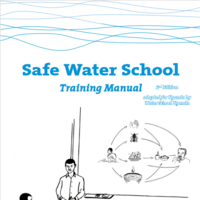Search
Books+
Searching 1,730 books
Search related to the career Speech Language Pathologist
Different Work Settings for SLPs:
1. Schools: Many speech-language pathologists (SLPs) work in educational settings, such as public or private schools. They collaborate with teachers, parents, and other professionals to provide speech and language services to students with communication disorders.
2. Hospitals and Rehabilitation Centers: SLPs can work in hospitals and rehabilitation centers, where they assess and treat individuals with communication and swallowing disorders resulting from medical conditions, injuries, or surgeries.
3. Private Practice: Some SLPs choose to establish their own private practice, offering diagnostic and therapeutic services to clients of all ages with various communication disorders. They may work independently or with a team of other SLPs.
4. Research and Academia: SLPs can pursue careers in research and academia, working in universities, research institutions, or government agencies. They conduct research, develop new assessment and treatment techniques, and educate future SLPs.
5. Early Intervention Programs: SLPs may work in early intervention programs, providing services to infants and toddlers with communication delays or disorders. They collaborate with families and other professionals to support the child's communication development.
6. Telepractice: With advancements in technology, SLPs can provide services remotely through telepractice. They use videoconferencing and other online tools to assess, diagnose, and treat clients who are unable to access in-person services.
7. Rehabilitation Centers for Adults: SLPs can work in rehabilitation centers specifically designed for adults, such as those recovering from strokes, traumatic brain injuries, or degenerative diseases. They help individuals regain their communication and swallowing abilities.
8. Government Agencies: SLPs may work for government agencies, such as departments of health or education, where they contribute to policy development, provide services in public health programs, or work in research and advocacy roles.
9. Home Health Care: SLPs can provide services in clients' homes, particularly for individuals who have difficulty accessing other settings due to physical limitations or medical conditions. They offer personalized care and support in familiar environments.
10. Specialized Clinics: SLPs may work in specialized clinics that focus on specific populations or disorders, such as clinics for individuals with autism spectrum disorders, voice disorders, or stuttering.
It's important to note that SLPs may work in multiple settings throughout their careers, depending on their interests, expertise, and the needs of the community they serve.
Source: Various AI tools
Vocational skills
Preschool
Searched in English.





























